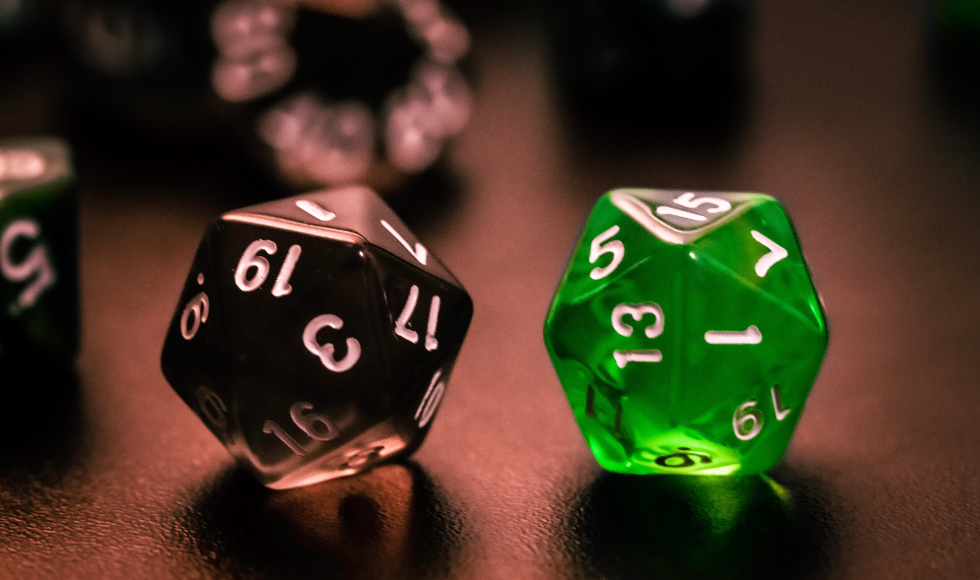A master’s course for dungeon masters

A DnD game, interactive poetry map and more: A new MA-level English course explores accessible, creative ways to share knowledge beyond essays, journal articles and the stereotype of the 'solitary scholar'.
You may not think that a graduate-level English class goes hand-in-hand with Dungeons and Dragons. But in a pilot MA class organized around the ideas of the “public humanities,” it definitely does.
Public humanities often centre on alternative forms of scholarship that are more accessible – and potentially more relevant – to people outside of academia. That can include experiential learning, community collaborations, digital exhibits, podcasts, and a host of other ways to share knowledge beyond a traditional book or academic journal article.
The 12 students in the class, which is now a compulsory course in the English MA program, had the option of presenting their work in a creative way, instead of a more traditional journal article (although they could do that too).
Because the course was strictly pass/fail, students had the leeway to experiment.
For one student, that meant an interactive poetry map of Hamilton. For another, it was a personally informed social history of the front yard.
And for Rebecca DeWael, a creative project meant Dungeons and Dragons.
“I hadn’t really done anything outside of traditional essays aside from a podcast for one other class,” she explains. “A friend got me into D&D last September, and I fell in love with the way that philosophical ideas that can be explored.”
DeWael was inspired by an online series called Dimension 20, which broadcasts a group of comedians and professional gamers playing tabletop role-playing games (also called RPGs, of which Dungeons and Dragons is probably the best known). One game in particular, called “Unsleeping City,” was set in a magical version of New York and featured players pushing back against capitalism and commoditized individualism.
“The big baddie in that game was The American Dream, which was trying to monotonize New York and make it flat and boring,” says DeWael, who is starting her PhD this year. “The players emphasized collective work and cooperation, and I found that really inspiring.”
At the time, DeWael was working with CUPE 3906, the union that represents McMaster TAs, sessional instructors and postdoctoral fellows. And that, she says, was the basis for her own D & D game, “We’d Rather Be Teaching,” which dealt with themes of unionization and labour rights on campus — along with a healthy dose of zombies.
Along with the ability to be creative with an untraditional final project, and produce something that might be interesting to a non-academic audience, DeWael said the course taught her another important lesson.
“This course really opened my eyes to work you can do outside of the academy,” she says. “It’s important to remind people that public humanities is something you can do outside of university, and you don’t need a PhD to do it. You don’t HAVE to become a professor – there are other opportunities out there!”
Part of public humanities is trying to restrategize how to show the impact of work in the humanities, and how it’s applicable beyond academia, explains Simon Orpana, who developed and taught “Critical and Creative Approaches to Literary Studies: Sharing Knowledges in/with/for Communities” this spring and summer.
“It’s pushing back against the stereotype of scholars isolated in an ivory tower, and figuring out ways to share research that a diverse public can engage in,” Orpana says.
“We’re collaborating in ways that validate different community knowledges and different ways of knowing.”
Showing students potential careers beyond academia was one of the intended outcomes of the class all along, and was aided by class visitors who shared their own, non-academic paths and projects, Orpana says.
“We wanted to give students examples of what life can look like after grad school, so we had guest lecturers like Geoff Martin, an English MA grad who is a creative non-fiction writer and an editor,” he says.
“And even if students do choose academia, we’re trying to push back against the ‘solitary scholar’ model of knowledge production.
“A scholar can do informed, critical, collaborative, community-engaged research — and universities can use their resources to help the public.”


